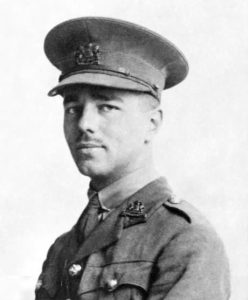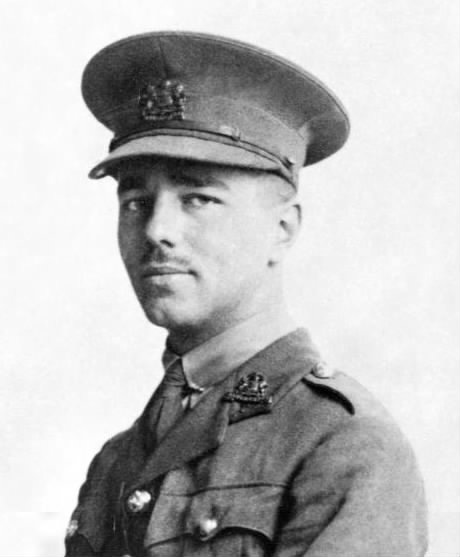Sometimes in the most tragic circumstances people are inspired to express their emotions – they make music, they paint, they write…
First World War British soldier, Wilfred Owen, chose to write and he made poetry out of one of the most horrendous situations of all — trench warfare.
You’ve probably heard of this leading WWI poet before, and if you haven’t you would have probably come across his work. His legendary literature outlived him and became symbolic of the horrors of the Great War.
“My subject is War, and the pity of War. The Poetry is in the pity.”

Owen had an optimistic view of the war and like many others at the time was influenced by the patriotism of the war effort. By June 1916, he was made a Second Lieutenant in the Manchester Regiment.
Front line action soon saw Owen’s cheerful outlook change to one of shock as he took in the dramatic scale of devastation and terror.
Owen was blown into the air by a trench mortar during his first period in the trenches and he was then trapped in an old German dugout for days. Owen ended up with shell shock and he was taken to Craiglockhart Hospital in Edinburgh. It was his stay here that the young writer, Owen, met Siegfried Sassoon, another poet that shared his view of the tragedy of trench warfare. Owen soon became scathing of the ‘patriotic gloss’ used to glorify war.
Sassoon helped develop Owen’s poetry and also helped to publicise his work.
His poetry was a reaction to the scale of death that he witnessed — and thankfully he was able to communicate that in such a poignant way that gives us all greater insight into life on the front…
Exert from Wilfred Owen’s Dulce et Decorum Est
“Bent double, like old beggars under sacks,
Knock-kneed, coughing like hags, we cursed through sludge,
Till on the haunting flares we turned our backs,
And towards our distant rest began to trudge.
Men marched asleep. Many had lost their boots,
But limped on, blood-shod. All went lame; all blind;
Drunk with fatigue; deaf even to the hoots
Of gas-shells dropping softly behind.
Gas! GAS! Quick, boys!—An ecstasy of fumbling
Fitting the clumsy helmets just in time,
But someone still was yelling out and stumbling
And flound’ring like a man in fire or lime.—
Dim through the misty panes and thick green light,
As under a green sea, I saw him drowning.”
In October 1918 after recovering from his injuries, Owen returned to the frontline to take part in the final allied push of the war— against the wishes of Sasson. He led units of the Second Manchesters to storm a number of enemy strong points near the village of Joncourt. Tragically he was shot in the head and killed of 4 November 1918. The news of his death, on 4 November 1918, arrived at his parents’ house in Shrewsbury on Armistice Day.
For his courage and leadership in the Joncourt action, he was awarded the Military Cross, an award he had always sought in order to justify himself as a war poet.
Sources: Wiki, & Poetry Foundation


